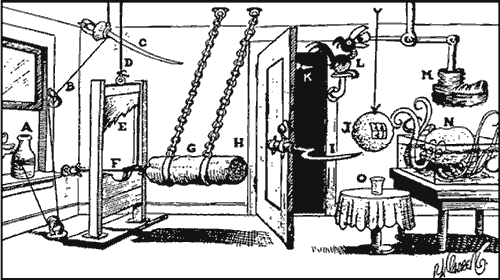For Want of a Nail
 One of my favourite bits of writing alternate history is figuring out the causality. It's amazing fun to think about how the events in your story change the course of history as we know it, and create entirely new event chains.
One of my favourite bits of writing alternate history is figuring out the causality. It's amazing fun to think about how the events in your story change the course of history as we know it, and create entirely new event chains.Besides the aspect of pure fun-- at least, I find thinking about chains of causality endlessly entertaining-- it's an excellent way to break the narrative of historical inevitability and examine the impact of real historical events in a meaningful way. It's one thing for characters in the course of a historical narrative to think on what might have happened differently, or express their hopes or fears about the outcome of a real event, and another to actively explore the ripples of historical change that occur as a result of altering one crucial moment.
A few things to consider:
First, there will be some inertia in the areas that aren't at ground zero of your point of divergence. For example, if your point of divergence is the Wampanoag leaving Plymouth Colony to their own devices in 1621 instead of showing them how to plant corn and catch fish, there won't be an impact on European history until the following autumn, and the major results of the failure of Plymouth won't show up in North American history for a few years. However, how fast the divergence spreads and effects world events is a function of both the nature of the event, the area covered by the original event, the magnitude of the event, and the speed of travel and news dissemination in your setting.
Second, unless you're dealing with a time-travel scenario and have a 'stable time loop' setup or the like, put aside the idea that history will 'spring back' into something resembling the world we know (this goes back to the fallacy of historical 'inevitability'). Each point of divergence will spawn more events which diverge from history as we know it, and so on-- a chain reaction rather than a lonely glitch.
Published on April 06, 2013 02:44
No comments have been added yet.



